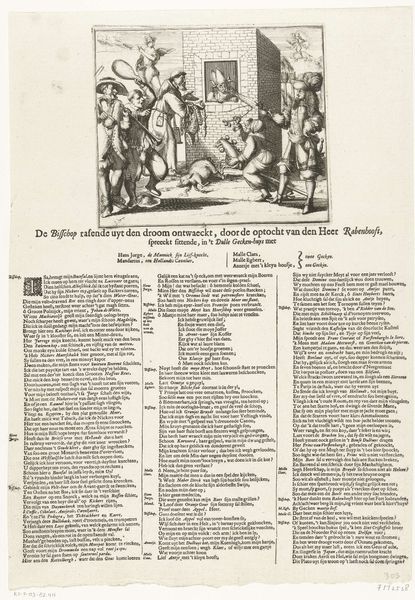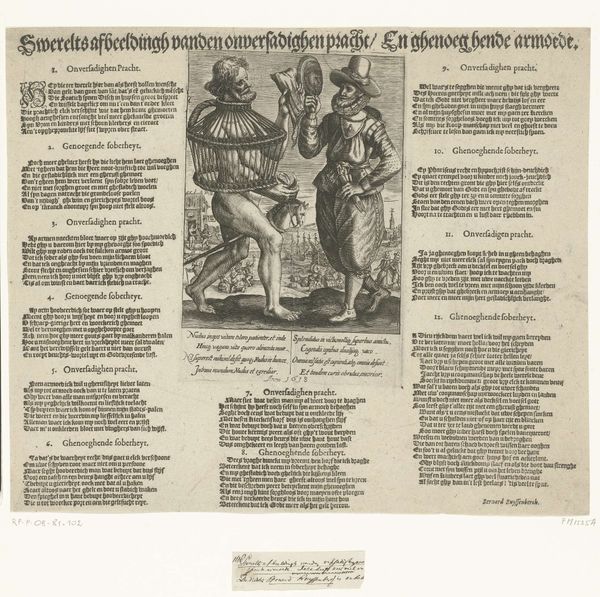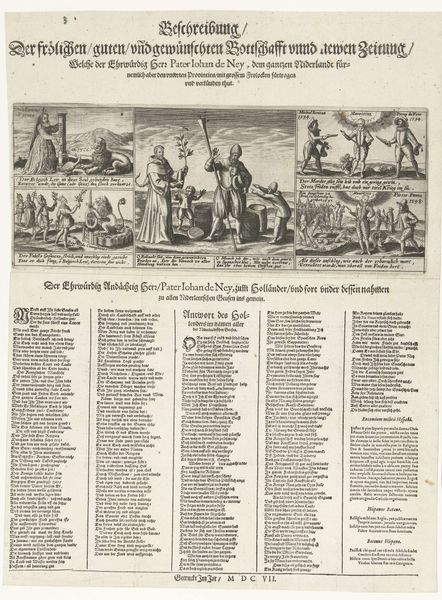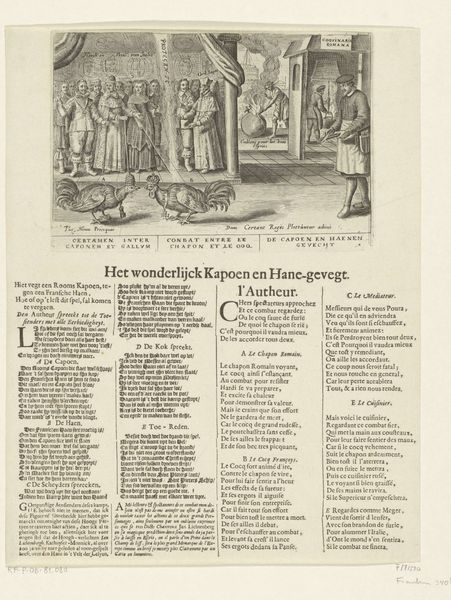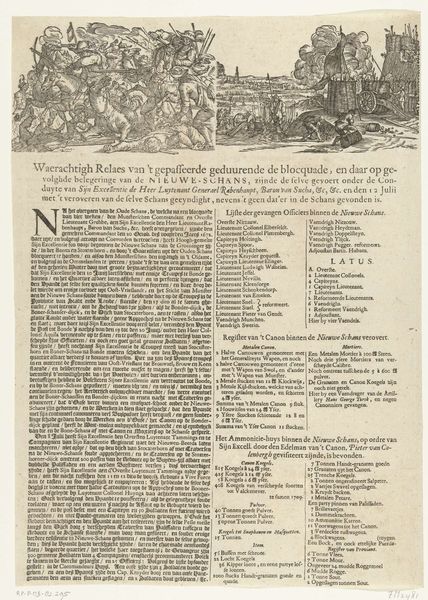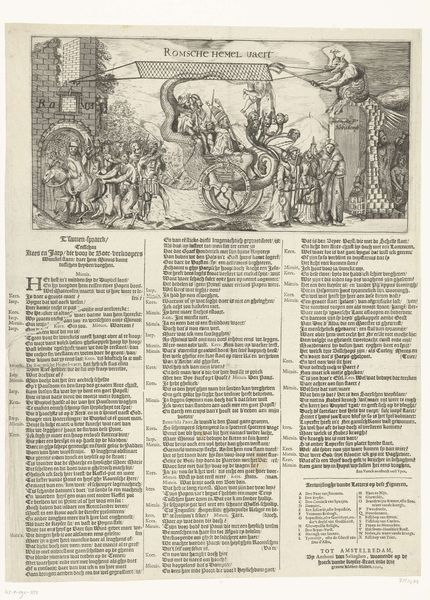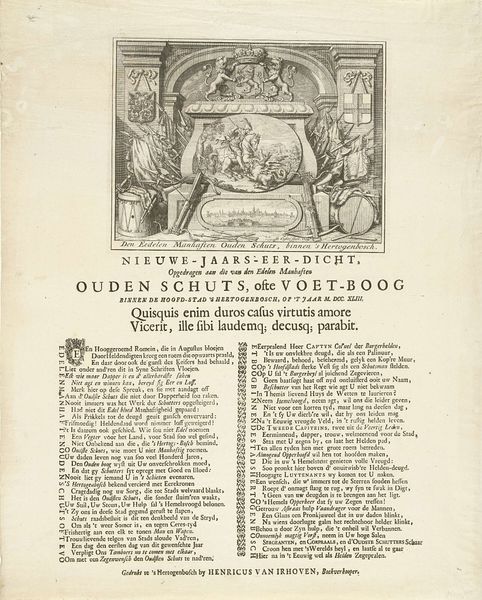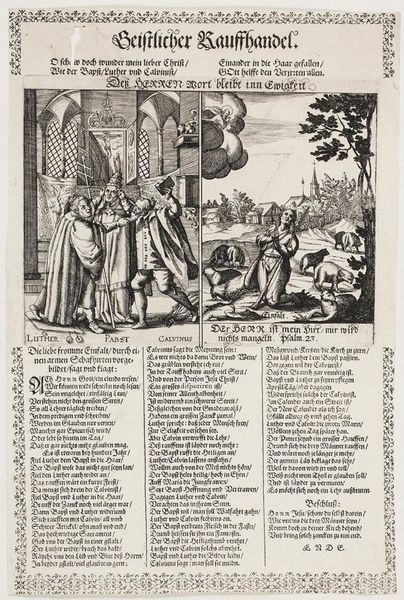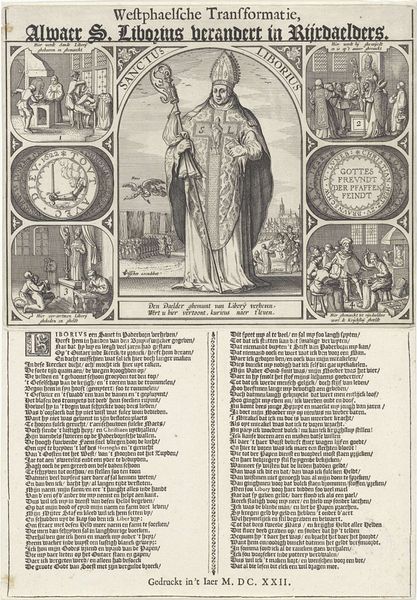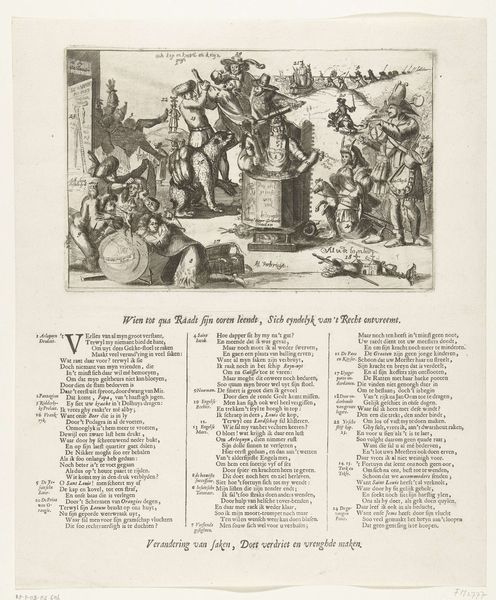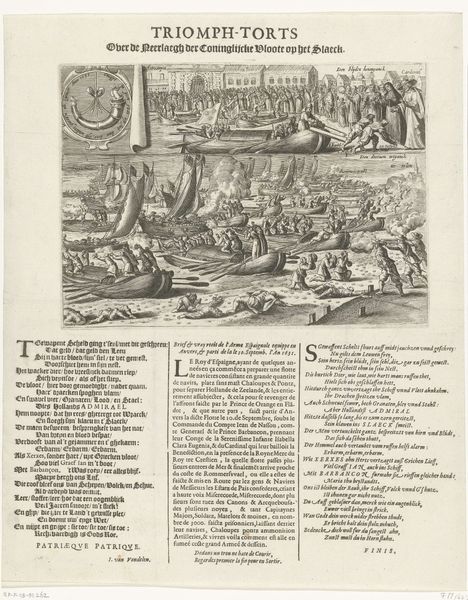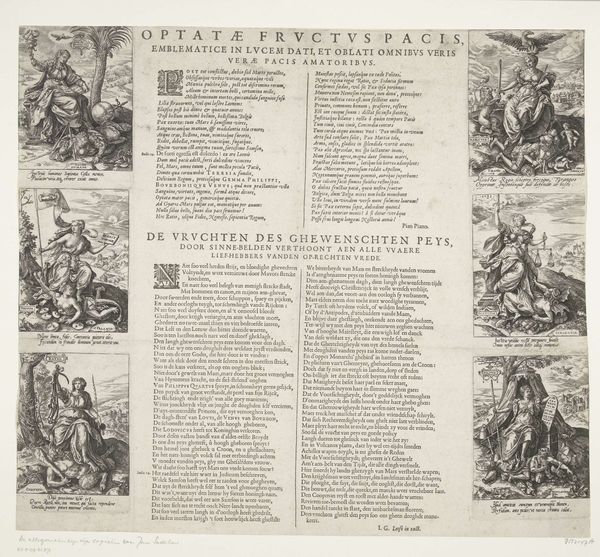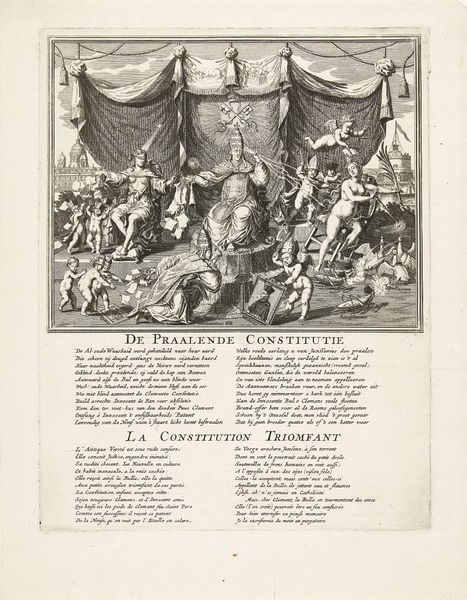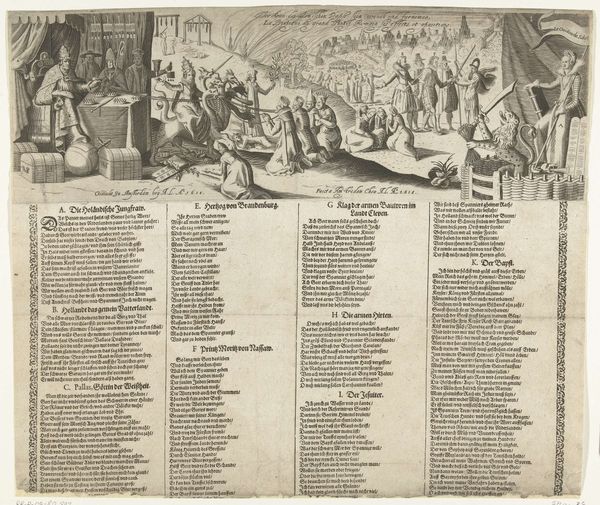
print, engraving
#
narrative-art
#
baroque
# print
#
caricature
#
engraving
Dimensions: height 414 mm, width 315 mm
Copyright: Rijks Museum: Open Domain
Curator: Here at the Rijksmuseum, we have an engraving titled "Spotprent op prins Wilhelm von Fürstenberg," dating back to 1674, by an anonymous artist. Editor: It’s biting, isn't it? That ensemble of figures clearly mocking someone, set against a backdrop that seems part domestic, part dreamscape. The lines are sharp; you can feel the satirical edge just from the composition. Curator: Indeed. Looking at the piece through a materialist lens, we see the process of engraving – the labour involved in meticulously etching these lines onto a metal plate. And note the broad accessibility of prints at the time. They served as crucial vehicles for political discourse and the shaping of public opinion. Think about how this was consumed and disseminated. Editor: Exactly. It’s impossible to divorce the art from the period's political tensions. Here, we see Fürstenberg satirized for his political maneuverings. Who was being represented and who was allowed to do the representation? Curator: Absolutely, and the caricature aspect is worth considering. It's using exaggeration as a tool, reflecting on material culture – their clothing and stance suggests very calculated self presentation to convey power. Editor: These kinds of visual representations perpetuated very specific gendered and racial hierarchies and it's something we really must confront. But despite the obvious power dynamics, there are moments of humor here. Almost a carnivalesque mocking of the establishment. What can we make of this ambiguity, I wonder. Curator: I think by focusing on production, distribution, and social milieu we get a broader, more textured picture. We understand the value systems being presented. It serves to better our overall understanding. Editor: For me it shows the incredible complexity involved when critiquing a historical image such as this. It forces a discussion which leads to better, broader views and greater understanding.
Comments
No comments
Be the first to comment and join the conversation on the ultimate creative platform.
